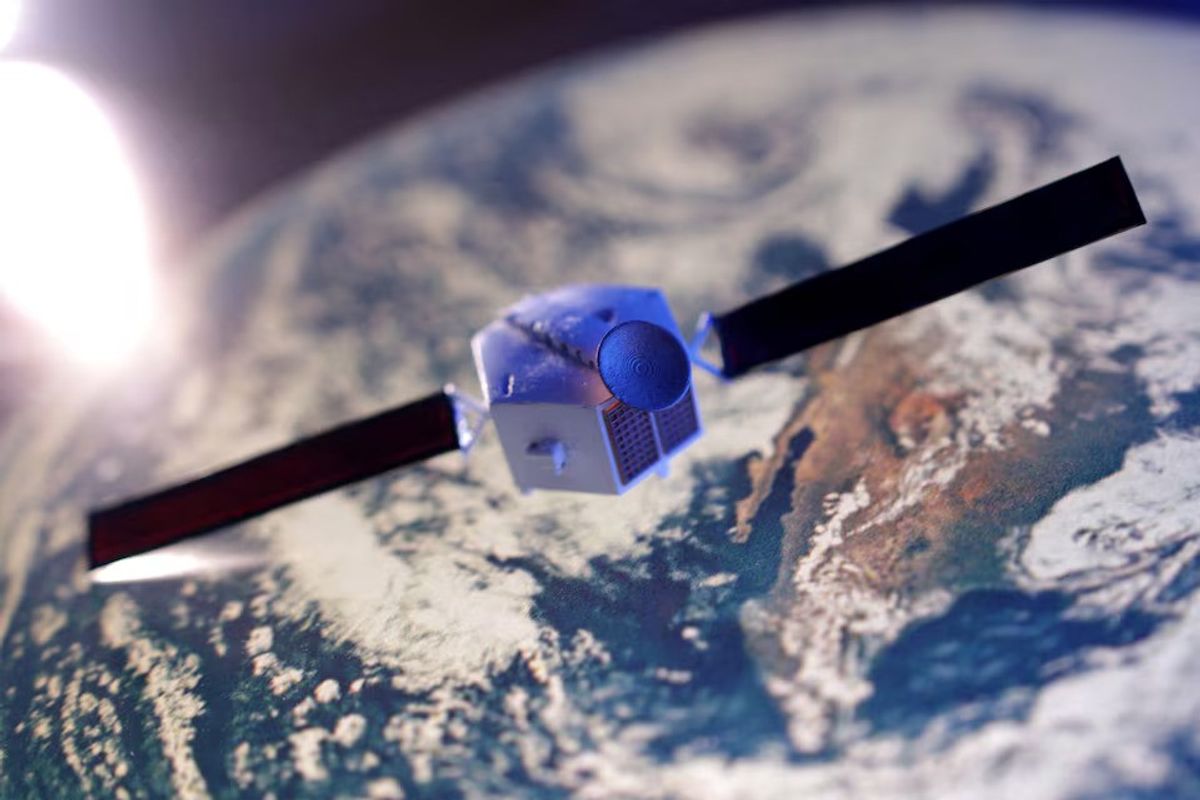Chinese space firm SSST registers in Pakistan to launch Starlink rival
‘G60 Starlink’ project aims to provide speedy internet and satellite communications, positioning itself against Elon Musk’s Starlink

Javed Hussain
Correspondent
I have almost 20 years of experience in print, radio, and TV media. I started my career with "Daily Jang" after which I got the opportunity to work in FM 103, Radio Pakistan, News One, Ab Tak News, Dawn News TV, Dunya News, 92 News and regional channels Rohi TV, Apna Channel and Sach TV where I worked and gained experience in different areas of all three mediums. My journey from reporting to news anchor in these organisations was excellent. Now, I am working as a correspondent with Nukta in Islamabad, where I get the opportunity of in-depth journalism and storytelling while I am now covering parliamentary affairs, politics, and technology.

Shanghai Spacecom Satellite Technology Limited (SSST), a Chinese space technology company, has registered in Pakistan to launch a low-orbit satellite constellation, authorities said Tuesday.
The project aims to provide speedy internet and satellite communications, positioning itself against Elon Musk’s Starlink. Experts refer to SSST's initiative as "G60 Starlink."
Last year, SSST launched 108 satellites. By the end of 2025, the company plans to have 648 satellites in orbit. The constellation is expected to provide global network coverage by 2027, with 15,000 satellites deployed before 2030.
During a session in the National Assembly, Minister of State for Information Technology and Telecommunication Shaza Fatima Khawaja confirmed SSST's registration. “Under the PTA’s current licensing regime, only locally registered companies with SECP can apply for PTA licenses,” she said.
Foreign entities registered with SECP, including SSST and Starlink Internet Services Pakistan (Pvt.) Ltd., have submitted applications for PTA licenses. Khawaja added that the licensing process is smooth, especially with the new Online Application Submission Information System (OASIS).
SSST aims to build a commercial low-orbit broadband satellite constellation with worldwide coverage, leveraging low-cost and intelligent manufacturing technology. The constellation, powered by over 1,000 satellites, seeks to create a new "satellite internet" infrastructure globally.
Doug Dawson, president of CCG Consulting, said, “The City of Shanghai entered the low-orbit broadband satellite market.” SSST launched 18 satellites in August and another 18 in October 2024, branded as Qianfan, or "Thousand Sails."
The satellites are launched by the China Aerospace Science and Technology Corporation (CASC) using the Long March 6A rocket. SSST plans to launch 108 satellites this year and 648 by the end of 2025 as part of its first constellation of 1,296 satellites. Future launches may carry 36 to 54 satellites each. The completed network will consist of 14,000 satellites, with ultimate plans for up to 30,000 by the 2030s.
The Shanghai municipal government backs SSST, aiming to foster a commercial space industry. Other Chinese ventures, like the China Satellite Network group, plan to launch 13,000 satellites, supported by the government’s new reusable medium-lift rockets ready by 2025.
Starlink, operated by Elon Musk, has continued its expansion with over 30 launches last year. By September 2024, Starlink had launched 6,426 satellites, with 6,371 functional. The company plans to reach 12,000 satellites in its initial constellation and 30,000 long-term.
In January last year, SSST raised 6.7 billion yuan ($933 million) for its satellite constellation, led by the National Manufacturing Transformation and Upgrading Fund. In August 2024, SSST launched its first batch of satellites for a megaconstellation to rival Starlink, reported a state-backed newspaper.
Dr. Qamar Ul Islam, director at Pakistan’s Institute of Space Technology, said, “Chinese constellations are coming to Pakistan and in the coming years, the war of space services will be in megaconstellations. The first constellation is already in place, and that is 'Starlink.' At least three more constellations are coming, including SSST's.”
Islam added that many internet service providers are changing their strategies by combining lower-orbit and medium-orbit satellites to enhance connectivity.






Comments
See what people are discussing